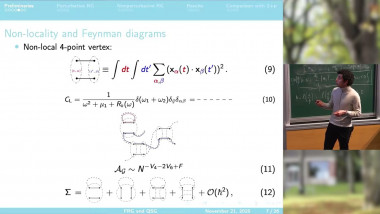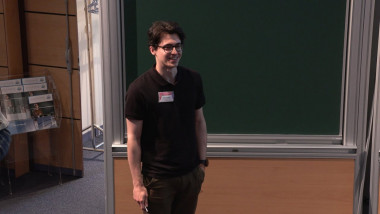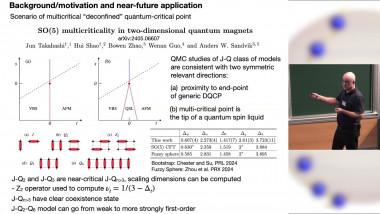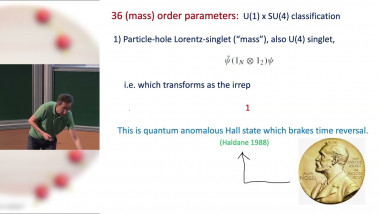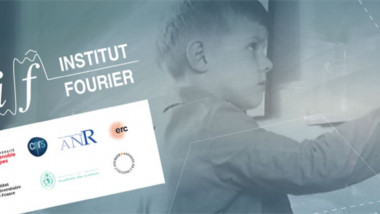Appears in collection : 2024 - T1 - WS1 - Quantum simulators
Monitored quantum systems undergo Measurement-induced Phase Transitions (MiPTs) stemming from the interplay between measurements and unitary dynamics. When the detector readout is post-selected to match a given value, the dynamics is generated by a Non-Hermitian Hamiltonian with MiPTs characterized by different universal features.
Here, we present a partial post-selected stochastic Schrödinger equation based on a microscopic description of continuous weak measurement. This formalism connects the monitored and post-selected dynamics to a broader family of stochastic evolution. We apply the formalism to a chain of free fermions subject to partial post-selected monitoring of local fermion parities. Within a 2-replica approach, we obtained an effective bosonized Hamiltonian in the strong post-selected limit. Using a renormalization group analysis, we find that the universality of the non-Hermitian MiPT is stable against a finite (weak) amount of stochasticity.
We further show that the passage to the monitored universality occurs abruptly at finite partial post-selection, which we confirm from the numerical finite size scaling of the MiPT. Our approach establishes a way to study MiPTs for arbitrary subsets of quantum trajectories and provides a potential route to tackle the experimental post-selected problem.

